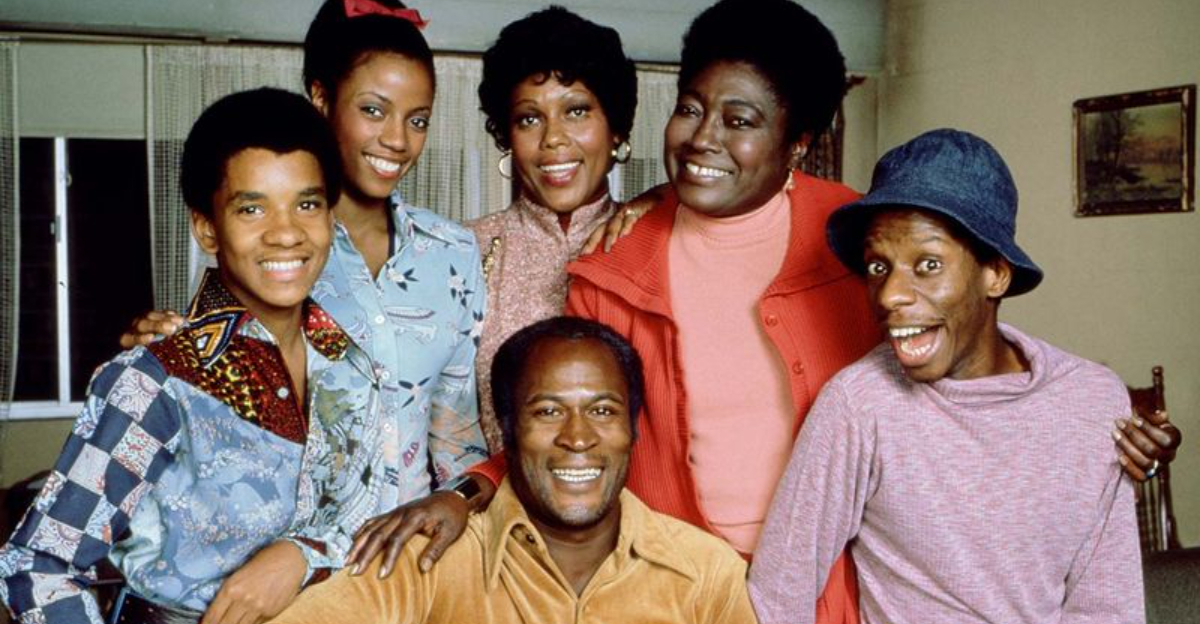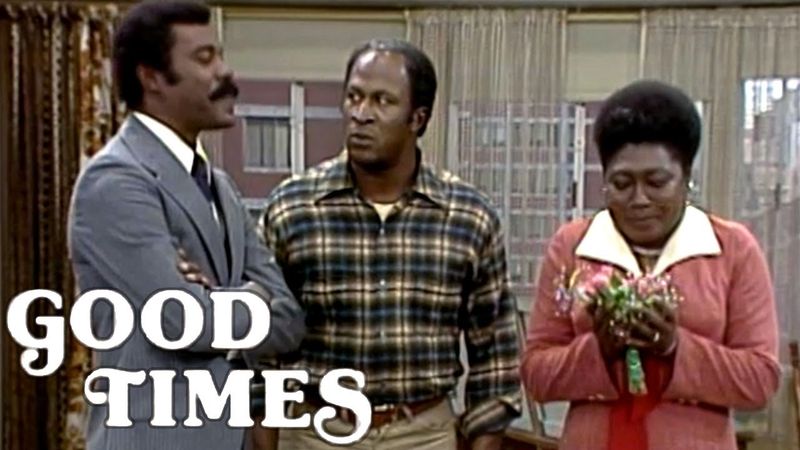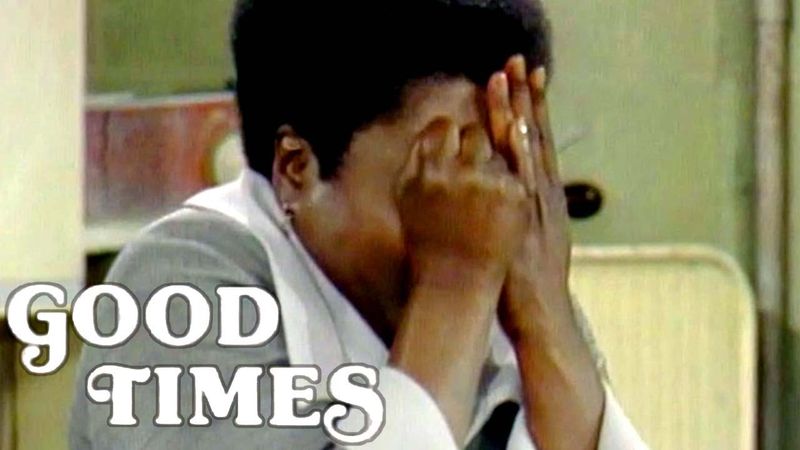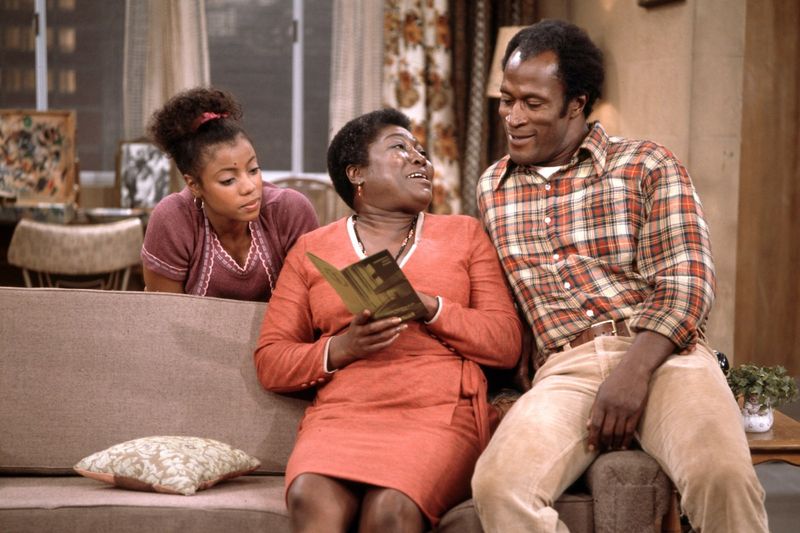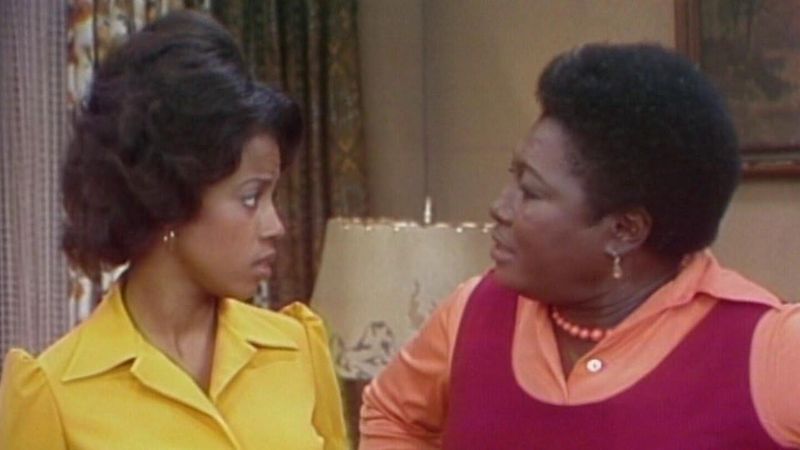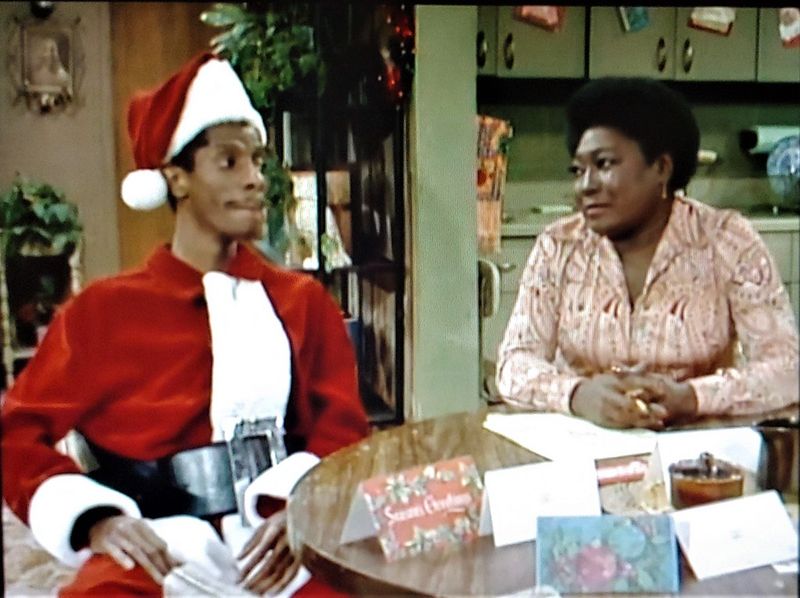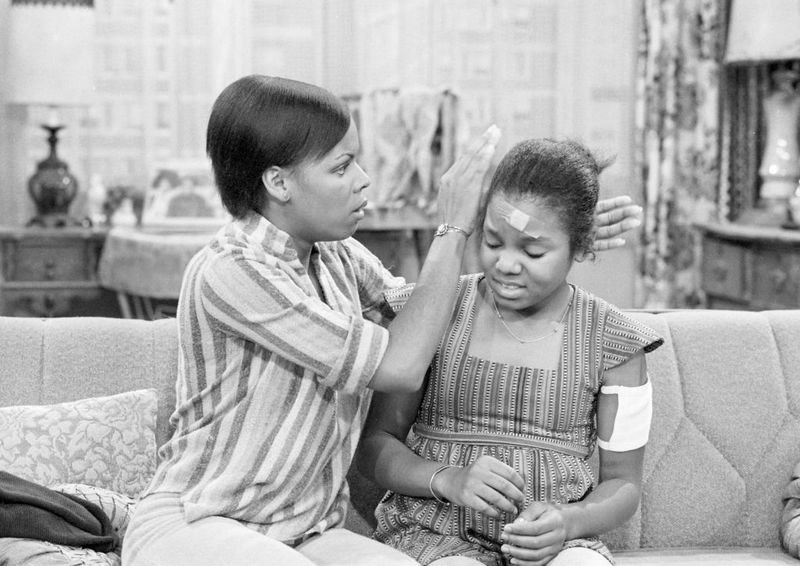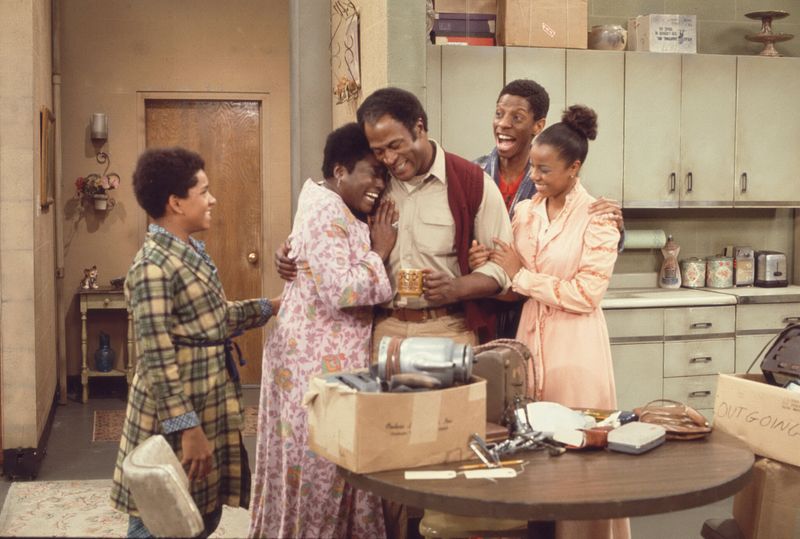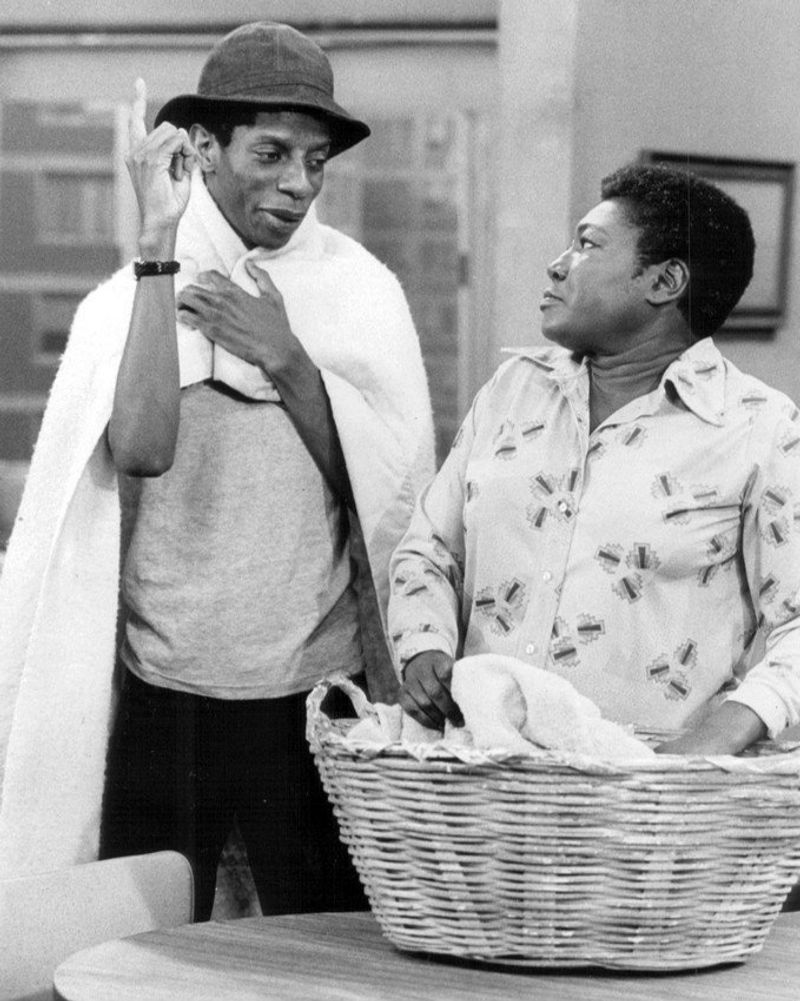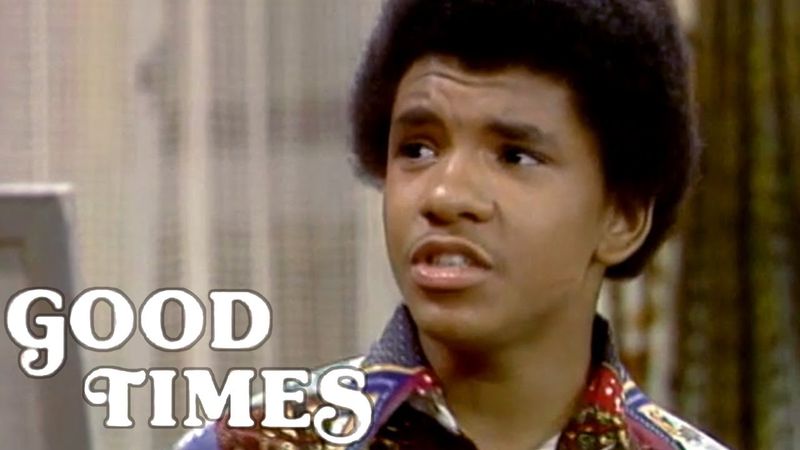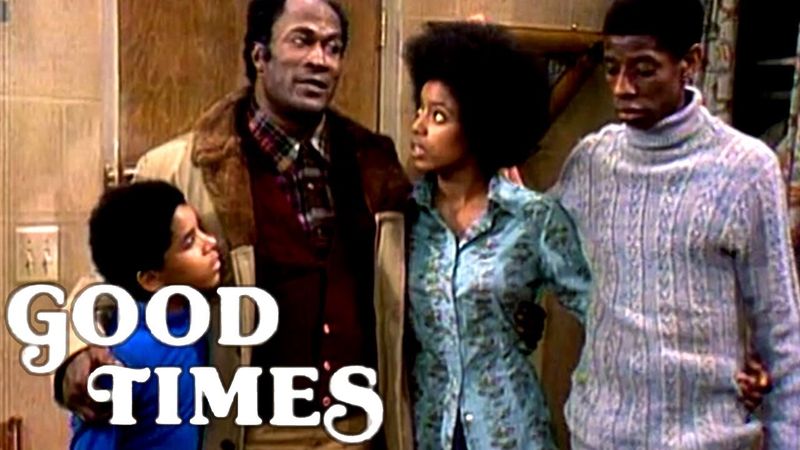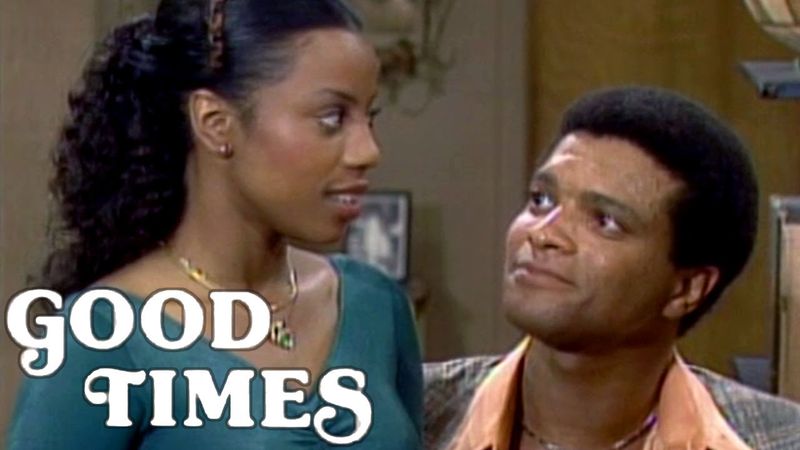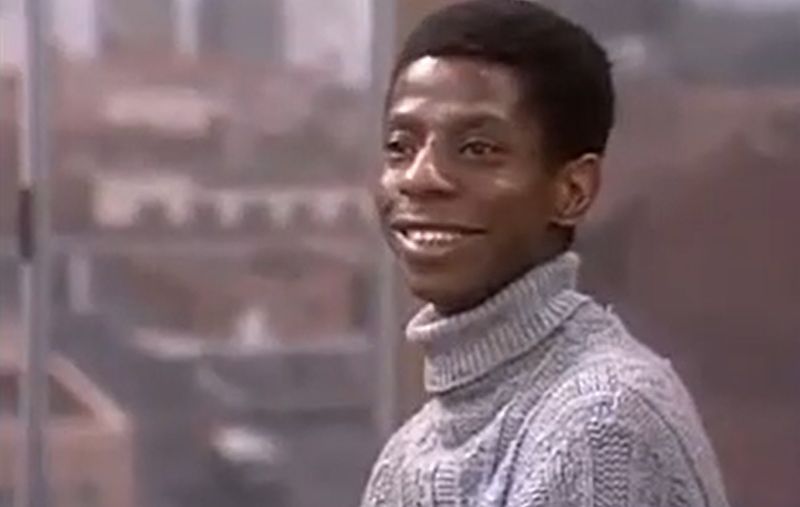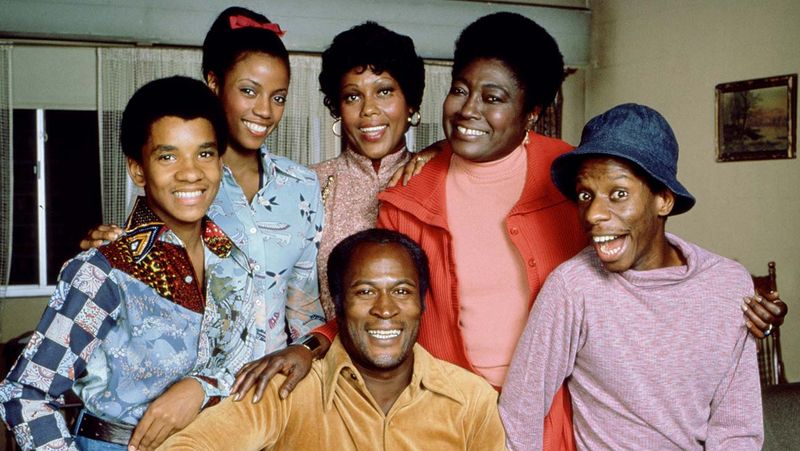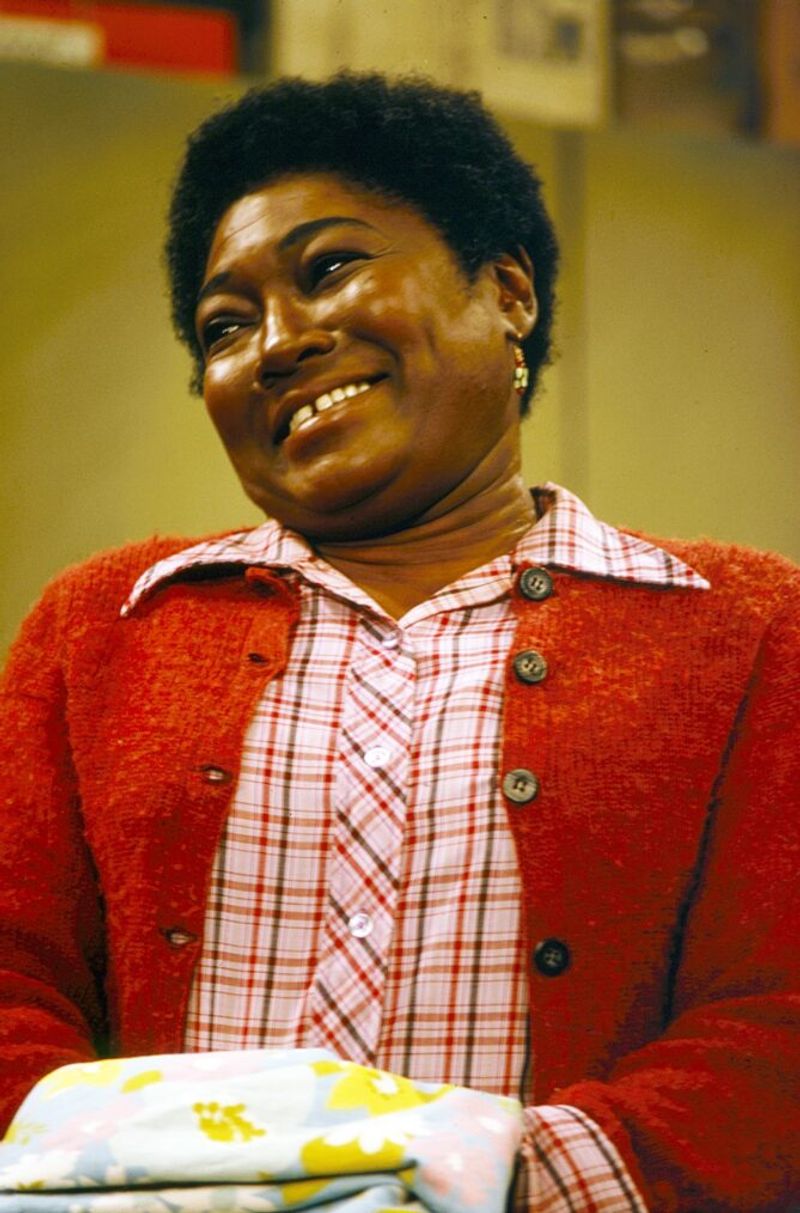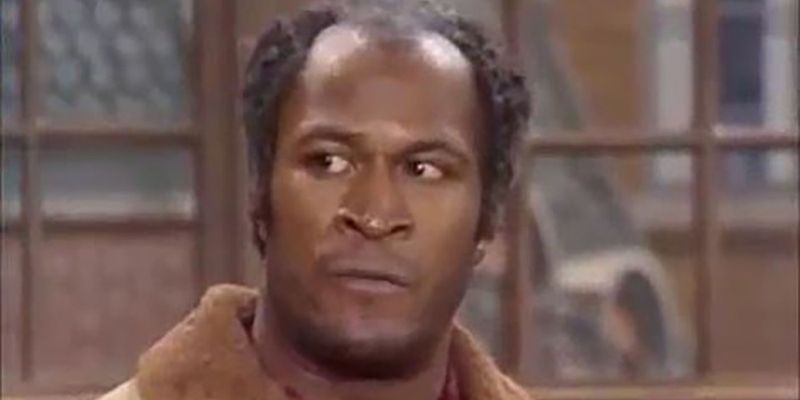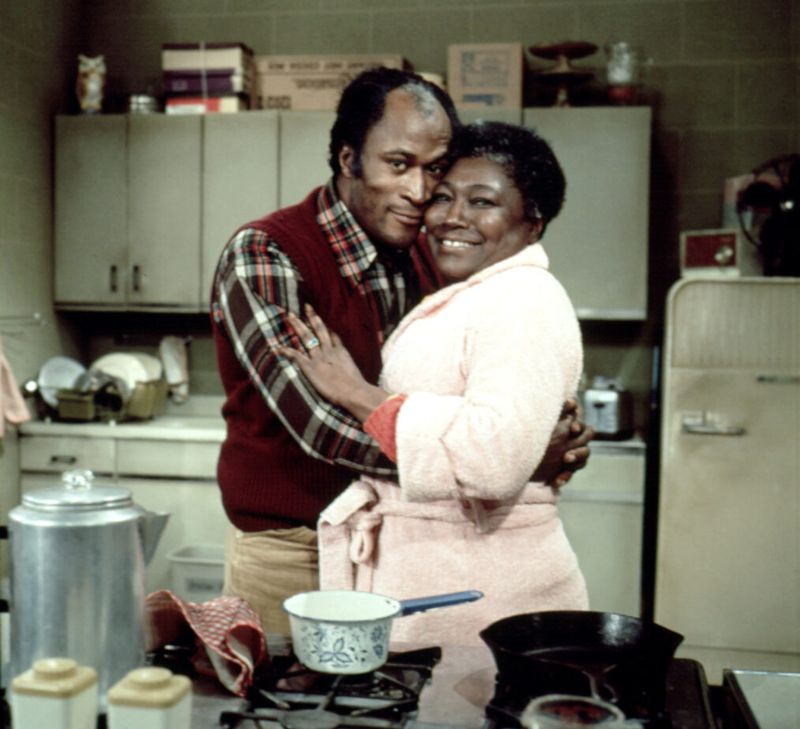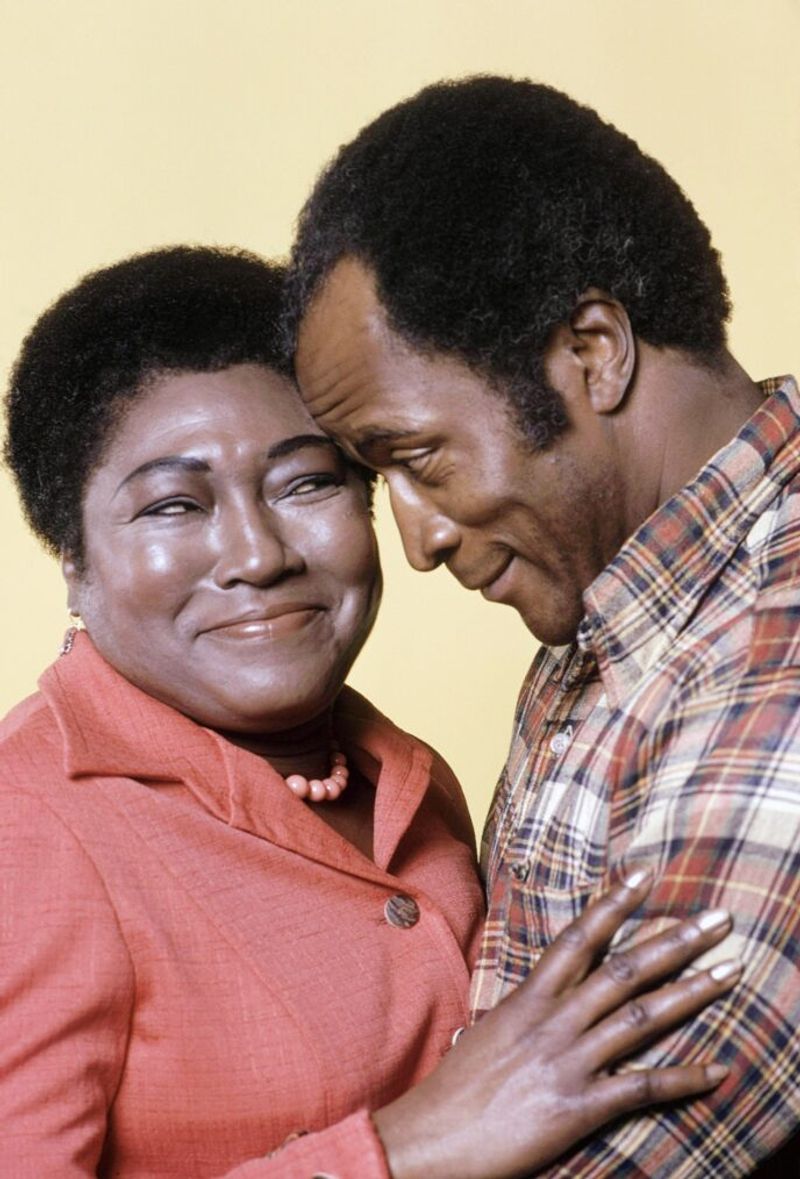Before sitcoms played it safe, “Good Times” dared to be bold. From 1974 to 1979, this groundbreaking show tackled poverty, racism, and inner-city struggles—without ever losing its sense of humor. These 18 unforgettable moments prove why Good Times was more than just a sitcom—it was a cultural revolution wrapped in laughter.
1. When James Evans Said “No” to a Gang Recruiter
It all began when James Evans firmly told J.J. not to join a gang. The threat was real, echoing the dangers many urban teens faced in the 70s. Yet, the family’s bond softened this tense moment with humor and love. J.J.’s quirky expressions provided comic relief, turning a serious talk into an unforgettable episode. James, with his commanding presence, embodied both authority and warmth. This episode remains a testament to the show’s ability to tackle gritty issues while keeping audiences entertained.
2. Florida’s Raw Reaction to James’s Death
Florida Evans’ raw, emotional reaction to James’s off-screen death still echoes in TV history. Her famous “Damn, damn, DAMN!” was both heart-wrenching and iconic. Rarely did sitcoms show grief this unfiltered. Her cry was a cathartic release, capturing universal pain. Yet, the family’s resilience shone through, providing a glimmer of hope amid sorrow. This episode demonstrated how the show could navigate the delicate balance between comedy and tragedy, making it a cultural touchstone.
3. When J.J. Faced Police Brutality
J.J.’s wrongful arrest for a crime he didn’t commit highlighted systemic injustice with eerie accuracy. His character, full of witty comebacks, reminded audiences why they adored him, even amid tension. The episode bravely addressed police brutality, a topic that resonated deeply with viewers. J.J.’s humor, juxtaposed with the gravity of the situation, struck a chord. His resilience in the face of adversity was both inspiring and entertaining, capturing the show’s essence of blending real issues with humor.
4. When Thelma Turned Down a Proposal for Her Education
Thelma’s decision to reject a marriage proposal for her education was a bold feminist statement in 1970s TV. Her graceful yet firm refusal highlighted her commitment to personal growth and independence. This storyline resonated with many viewers, portraying a woman prioritizing her ambitions. Thelma’s sass and comedic timing added layers to her character, making this moment both empowering and entertaining. Her strength and wisdom made a lasting impression, showcasing the progressive themes “Good Times” dared to explore.
5. When the Family Couldn’t Afford Christmas
The Evans family faced the reality of a Christmas without gifts, a poignant reminder of the struggles many experienced. Despite the lack of presents, they found joy in each other’s company, turning scarcity into laughter. This episode captured the spirit of resilience, showing how love and humor can transcend material limitations. The family’s ability to find happiness in simple pleasures resonated with audiences, highlighting the show’s message of hope and unity amidst adversity.
6. When Penny’s Abuse Was Revealed
Penny, played by Janet Jackson, stole hearts with her poignant story of child abuse. Her vulnerability and courage touched viewers deeply, highlighting a dark yet essential narrative. The Evans family’s compassion brought hope and light to her challenging situation. This storyline showcased the show’s willingness to tackle difficult topics with sensitivity and humor, making it both impactful and memorable. Penny’s journey from hardship to healing resonated with audiences, emphasizing the power of love and support.
7. When J.J. Was Told His Art “Wasn’t Black Enough”
J.J.’s artistic ambitions were challenged when he was told his work “wasn’t Black enough.” This biting moment exposed the racial pigeonholing Black creatives often face. Despite the critique, J.J.’s resilience and humor shone through, turning adversity into determination. His journey illustrated the show’s commitment to addressing complex cultural issues with wit and insight. J.J.’s experience in the art world resonated with many, making this episode both thought-provoking and entertaining.
8. When Florida Stood Her Ground Against a Racist Teacher
Florida Evans confidently stood up to Michael’s teacher over racial slurs and low expectations. Her polite but fierce rebuttal made viewers cheer and laugh in solidarity. This episode highlighted the show’s commitment to addressing racial injustice with grace and humor. Florida’s strength and courage became a beacon of hope, inspiring audiences to challenge discrimination. Her ability to blend politeness with assertiveness showcased the show’s nuanced approach to social issues, making it both impactful and entertaining.
9. When Michael Called Out the System—Again
Known as “The Militant Midget,” Michael frequently challenged systemic injustice. Whether protesting unfair textbooks or slum landlords, his fiery speeches brought real-life debates into living rooms. His passion and wit made these moments both engaging and thought-provoking. Michael’s persistent fight for justice resonated with viewers, showcasing the show’s dedication to social commentary. His ability to inspire change through humor and conviction made him a beloved character, highlighting the power of youth activism.
10. When Willona Dragged a Judgmental Neighbor
Willona’s unmatched sass came into full display when she defended Penny against a judgmental neighbor. Her hilarious and righteous takedown had fans cheering, showcasing her quick wit and protective nature. Willona’s ability to blend humor with social commentary made her a standout character. Her fierce loyalty and comedic timing turned this confrontation into an iconic moment, proving that laughter can be a powerful tool against prejudice.
11. When the Rent Was Due—and They Had Nothing
Facing overdue bills and potential eviction, the Evans family represented the real-life instability many knew too well. However, they continued to find humor in their predicament, turning despair into resilience. This episode highlighted the show’s ability to blend serious issues with comedy, making it both relatable and entertaining. The family’s unwavering spirit amidst financial struggles resonated with viewers, illustrating the strength of family unity and laughter.
12. When Thelma Defended Her Interracial Relationship
Thelma’s relationship with a Puerto Rican man faced fierce backlash, reflecting real tensions in 1970s America. Her grace and humor in confronting prejudice were both empowering and entertaining. This storyline showcased the show’s commitment to addressing complex social issues with sensitivity and wit. Thelma’s strength and determination to defend her love resonated with audiences, highlighting the power of unity and acceptance.
13. When J.J. Lost His Job Over a Protest
J.J. faced the consequences of integrity when he lost his job for standing up in a protest. His resilience and humor in the aftermath turned adversity into triumph. This episode captured the show’s essence of addressing serious themes with wit and hope. J.J.’s ability to maintain his comedic charm while tackling real-world issues made his character both relatable and inspiring.
14. When the Kids Tried to Hide Their Poverty at School
Michael and Thelma’s attempt to fake wealth at school was both awkward and relatable. Their comedic misadventures highlighted the lengths kids go to fit in, especially when growing up with less. This episode captured the spirit of resilience and humor, making it both entertaining and poignant. The children’s ability to find laughter in their struggles resonated with viewers, showcasing the show’s unique blend of comedy and social commentary.
15. When Florida Took a Job as a Maid—And Was Proud of It
Florida Evans took pride in her work as a maid, breaking stereotypes and bringing dignity to an often-dismissed role. Her embrace of honest labor challenged societal perceptions, highlighting the show’s commitment to social commentary. Florida’s humor and grace infused her character with depth, making this moment both empowering and entertaining. Her ability to find pride and joy in her work resonated with viewers, illustrating the show’s message of dignity and respect.
16. When James Turned Down Dirty Money
James Evans’ refusal of dirty money was a powerful statement of morality over desperation. His simple yet powerful explanation, laced with sarcasm, highlighted the show’s ability to tackle ethical dilemmas with humor. James’ integrity resonated with viewers, showcasing the strength of character and the importance of doing what’s right. This episode captured the essence of “Good Times,” blending serious themes with comedic undertones.
17. When the Family Made Do with Canned Sardines
Food insecurity was no joke for the Evans family, yet they turned a meal of canned sardines into a moment of humor and connection. This episode captured the show’s unique ability to find laughter in adversity, making it both heartwarming and entertaining. The family’s resilience and ability to uplift each other during tough times resonated with audiences, illustrating the power of love and humor in overcoming challenges.
18. When Florida Left the Show—And It Still Survived
Florida’s departure could have spelled the end for “Good Times,” but the show persisted. Her exit marked a turning point, yet the laughs and strong messages continued, highlighting the show’s resilience. Florida’s character left a lasting legacy, underscoring the importance of strong storytelling and character development. This moment showcased the show’s ability to adapt, ensuring its legacy endured beyond her exit.
